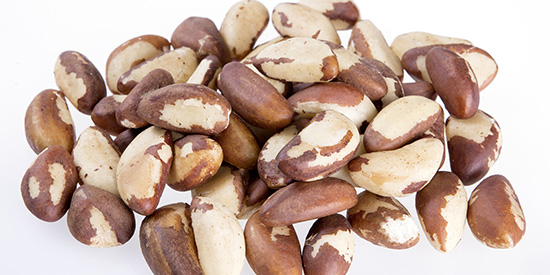Diet as strategy to slow cognitive decline and reduce the risk of dementia
Media release
A researcher from the Institute for Physical Activity and Nutrition at Deakin University has found that one Brazil nut daily may help to slow cognitive decline and reduce the risk of dementia.
Dr Barbara Cardoso has found that just one of her native country's Brazil nuts each day can improve selenium status and reduce cognitive decline common to older adults and might protect against Alzheimer's disease.
Brazil nuts are the richest natural source of selenium, a nutrient Dr Cardoso has identified is lacking in the Alzheimer's disease brain.
"We have known that the Mediterranean diet might slow down ageing and crossword puzzles can keep the brain healthy," she said.
"Brazil nuts contain the most concentrated food source of selenium and we found that just one nut per day provided positive changes on cognitive performance for older adults that are selenium deficient and present mild cognitive impairment."
Dr Cardoso said the following tips can help slow cognitive decline and reduce the risk of dementia:
- Include fruits daily and green vegetables at least once a day on your plate
- As one Brazil nut a day is enough to boost selenium intake, mix it with a handful of other nuts such as almonds, walnuts, macadamias and pistachios
- Be active! Include at least 30 minutes of physical activity in your daily routine
- Quit smoking
- Improve your cholesterol, blood pressure and blood glucose. A healthy diet with fruits, veggies, lean meat, fish and healthy fats (avocado, nuts and olive oil) contribute to better cardiovascular health
- Get quality sleep: stick to a sleep schedule of the same bedtime and wake up time, and make sure you turn all the artificial lights off before going to bed
- Learn something new and keep your brain active
Dr Cardoso is a nutritional biochemist with a PhD from Brazil's University of Sao Paulo and is an Alfred Deakin Postdoctoral Research Fellow at the Institute for Physical Activity and Nutrition (IPAN) at Deakin University. Dr Cardoso's research looks at the role of micronutrients in neurological function.

